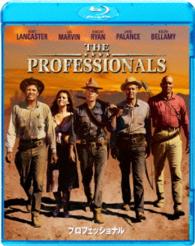- ホーム
- > 洋書
- > 英文書
- > Philosophy
Full Description
What is free will? Can it exist in a determined universe? How can we determine who, if anyone, possesses it? Philosophers have debated the extent of human free will for millennia. In recent decades neuroscientists have joined the fray with questions of their own. Which neural mechanisms could enable conscious control of action? What are intentional actions? Do contemporary developments in neuroscience rule out free will or, instead, illuminate how it works? Over the past few years, neuroscientists and philosophers have increasingly come to understand that both fields can make substantive contributions to the free-will debate, so working together is the best path forward to understanding whether, when, and how our choices might be free
This book contains thirty bidirectional exchanges between neuroscientists and philosophers that focus on the most critical questions in the neurophilosophy of free will. It mimics a lively, interdisciplinary conference, where experts answer questions and follow-up questions from the other field, helping each discipline to understand how the other thinks and works. Each chapter is concise and accessible to non-experts-free from disciplinary jargon and highly technical details-but also employs thorough and up-to-date research from experts in the field. The resulting collection should be useful to anyone who wants to get up to speed on the most fundamental issues in the rising field of the neurophilosophy of free will. It will interest experts from philosophy or neuroscience who want to learn about the other discipline, students in courses on a host of related topics, and lay readers who are fascinated by these profound issues.
Contents
Preface
I. Questions from Neuroscientists for Philosophers
1. What is an intention? - Gideon Yaffe
2. What is a will? - Pamela Hieronymi
3. When is an action voluntary? - Pamela Hieronymi
4. What is freedom? - Walter Sinnott-Armstrong
5. What is free will? - Timothy O'Connor
6. Can there be free will in a determined universe? - Timothy O'Connor
7. Does free will come in degrees? - Jonathan Hall & Tillmann Vierkant
8. How can we determine whether or not we have free will? - Alfred R. Mele
9. What kind of neuroscientific evidence, if any, could determine whether anyone has free will? - Adina L. Roskies
10. What kind of behavioral experiments, if any could determine whether anyone has free will? - Tim Bayne
11. Can a robot with artificial intelligence have free will? - Jonathan Hall & Tillmann Vierkant
12. Do conscious decisions cause physical actions? - Ned Block
13. How is consciousness related to freedom of action or will? - Tim Bayne
14. How is responsibility related to free will, control, and action? - Gideon Yaffe
15. What are reasons? - Walter Sinnott-Armstrong
II. Questions from Philosophers for Neuroscientists
16. What are the main stages in the neural processes that produce actions? - Patrick Haggard & Elisabeth Parés-Pujolràs
17. Does the will correspond to any clearly delineated brain area or activity? - Gabriel Kreiman
18. How are the neural processes for deciding when to move similar and different from those for deciding what or how to move? - Antonio Ivano Triggiani & Mark Hallett
19. How are arbitrary and deliberate decisions similar and different? - Jye Bold, Liad Mudrik, & Uri Maoz
20. How do higher-level brain areas exert control over lower-level brain areas? - Mark Hallett
21. What are intentional actions? - Elisabeth Parés-Pujolràs & Patrick Haggard
22. What evidence is there that intentions are represented in the brain? - John-Dylan Haynes
23. What is known about the neural correlates of specific beliefs and desires that inform human choices? - Amber Hopkins & Uri Maoz
24. How can we determine whether or not an agent is conscious of a bit of information relevant to an action? - Liad Mudrik & Aaron Schurger
25. Which neural mechanisms could enable conscious control of action? - Jake Gavenas, Mark Hallett, & Uri Maoz
26. How does the absence of a consensus about the neural basis of consciousness and volition affect theorizing about conscious volition? - Amber Hopkins, Liad Mudrik, & Uri Maoz
27. How can we determine the precise timing of brain events related to action? - Mark Hallett & Aaron Schurger
28. How can we determine the precise timing of mental events related to action? - Sae Jin Lee, Sook Mun (Alice) Wong, Uri Maoz, & Mark Hallett
29. Are any neural processes truly random (or stochastic)? - Hans Liljenström
30. How can computational models help us understand free will? - Gabriel Kreiman, Hans Liljenström, Aaron Schurger, & Uri Maoz
Brain Maps - Amber Hopkins and Natalie Nichols
Glossary - Claire Simmons and Amber Hopkins
Annotated Bibliography - Deniz Ar?türk and Amber Hopkins








